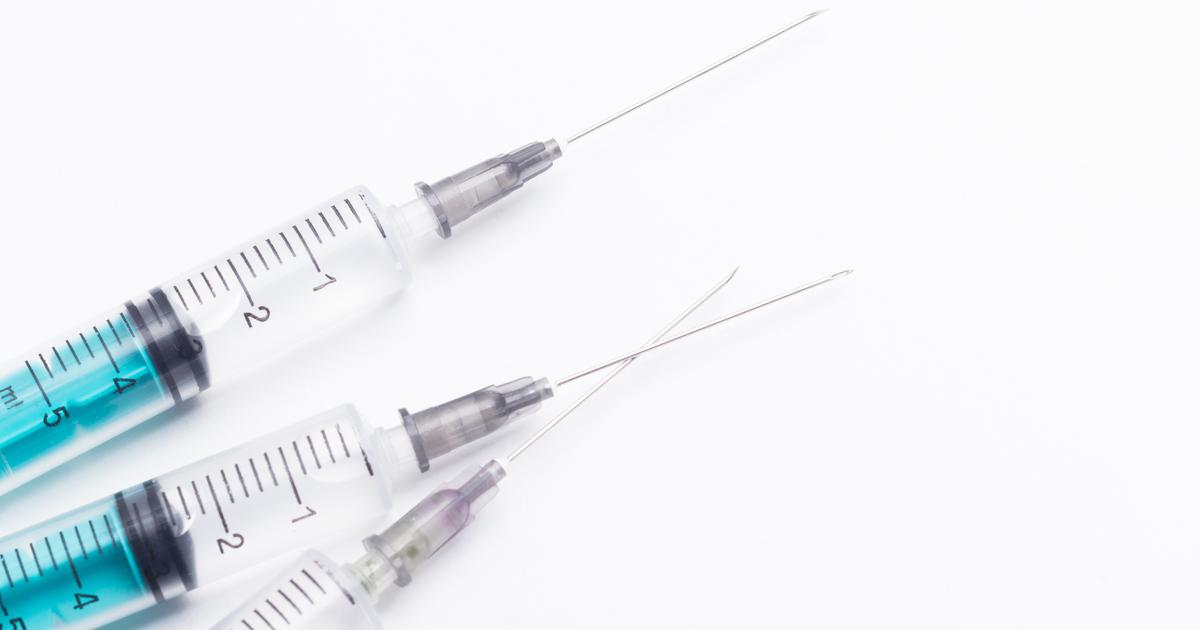Over the weeks, the anticipated flow gradually dried up.
The deliveries of doses of Covid-19 vaccines expected by France by the end of April have increased from 37 million in early January to 29 million this week, according to the latest table released Tuesday by the Ministry of Health.
By the end of March, 16.5 million doses should be delivered in France, versus 21.5 million planned two months ago.
And these gaps are likely to widen further over the next few weeks, if AstraZeneca does not keep its commitments.
Anticipating the number of doses received is of course a perilous exercise, given that many factors can impact the anticipated stock (industrial delays, delayed marketing authorization, etc.).
But it is essential to plan over several months in order to have a vision of the number of inhabitants that it will be possible to vaccinate.
CureVac finally not before June
When Olivier Véran communicated a first table on January 7, only Pfizer was then distributed in France.
Moderna had been validated by the European Medicines Agency the day before, but the first injections were not going to start until January 11.
As for AstraZeneca, CureVac and Janssen (a subsidiary of Johnson & Johnson), marketing authorization was expected - respectively - in February, March, and April.
At that time, 37 million doses were therefore expected in total at the end of April.
This number will only decrease over the weeks.
On February 2, 35 million doses were still expected at the end of April.
In the latest version of the table, dated March 9, only 29.3 million doses are now expected.
What has happened in the meantime?
This decrease is mainly due to the trio AstraZeneca, CureVac and Janssen, whose cumulative weight by the end of April has fallen from 20 to 10 million.
CureVac should finally arrive only in June instead of March.
The other two have experienced or are anticipating delays.
Regarding AstraZeneca, the gap started in February.
While 5 million doses were initially expected during this first month, France finally received only 1.6 million.
By the end of April, 9.2 million doses are now expected, compared to 13 million in early January.
Pressure on AstraZeneca
But will this figure be kept?
Nothing is certain, according to recent statements by European and French authorities.
"It is time for AstraZeneca to do what it takes to fulfill commitments," European Commissioner Thierry Breton summoned Thursday evening, relayed by several French ministers.
"Next week, we will have few doses, the following week, we will have few doses and it is to be feared that the following week, we will also have few doses", warned almost to the same the Minister of Health, Olivier Véran.
To make matters worse for the British group's difficulties, non-European countries, such as the United States, are blocking the export of doses produced on their soil.
The #AstraZeneca laboratory must now respect its commitments and present us with a precise action plan.
https://t.co/YQwLZl1k2I
- Agnès Pannier-Runacher (@AgnesRunacher) March 11, 2021
As for Janssen, just validated by the European Commission, his arrival in April should take place at a slower pace than expected.
The government now anticipates only one million doses, against nearly three million until last week.
"We have initiated discussions with the laboratory to secure this first delivery", replied Tuesday the Ministry of Economy and Finance, specifying that "the laboratory has not yet committed to a volume."
Pfizer, better than expected
Such delays are "not surprising" in the eyes of the health economist Frédéric Bizard.
"The government has absolutely no control over the production of vaccines and their delivery in France," he said.
For the moment, no French site manufactures doses.
Several partnerships have been established to allow the bottling of vaccines from another group, in particular the one between the French Delpharm and Pfizer / BioNTech.
"We expect production to start in the next two weeks, with the first batches delivered in April," Bercy indicated on Tuesday.
France is also constrained by the European calendar since it has undertaken not to depart from this framework for its supply.
READ ALSO>
Covid-19: five minutes to understand why Europe allows itself to withhold vaccines from other countries
Newsletter It pays me
The newsletter that improves your purchasing power
Subscribe to the newsletterAll newsletters
Part of the decline was however offset by Pfizer / BioNTech, which should deliver more than expected in the coming weeks.
The stock expected at the end of April rose from 14 to 16.7 million doses, that at the end of May from 20 to 28.3 million.
This development is consistent with the promise made in mid-January.
The two laboratories then announced delays for one or two weeks, justified by work to be carried out in a factory in Belgium.
"Pfizer and BioNTech have developed a plan that will increase manufacturing capacity in Europe and provide many more doses in the second quarter," they assured then.















